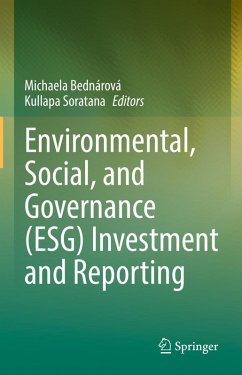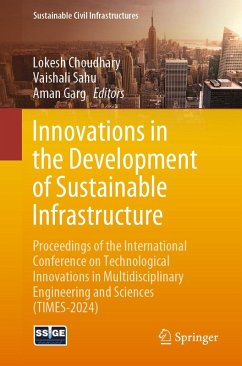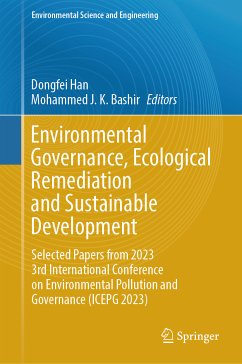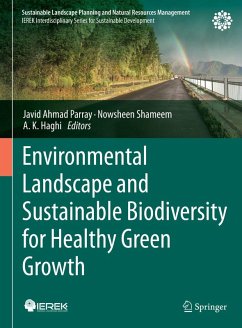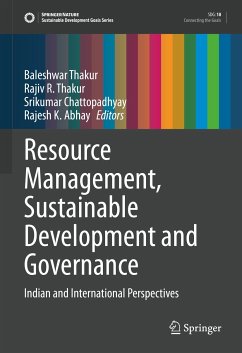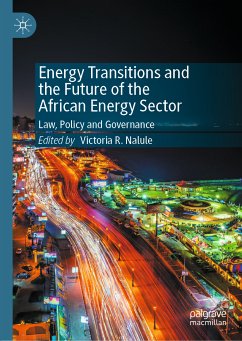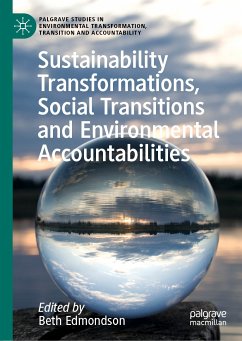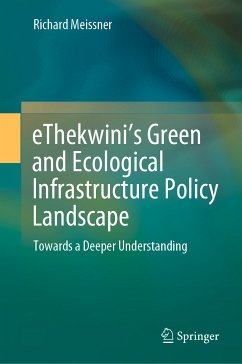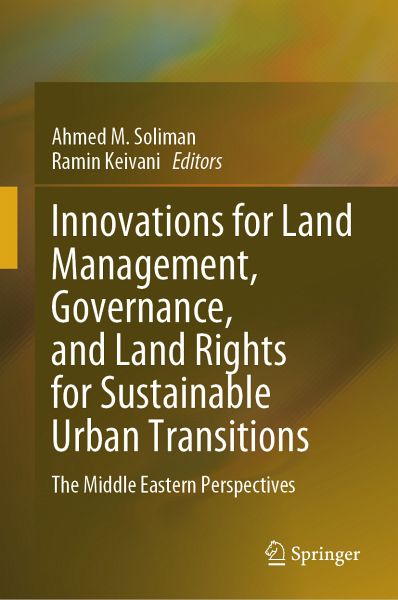
Innovations for Land Management, Governance, and Land Rights for Sustainable Urban Transitions (eBook, PDF)
The Middle Eastern Perspectives
Redaktion: Soliman, Ahmed M.; Keivani, Ramin
Versandkostenfrei!
Sofort per Download lieferbar
105,95 €
inkl. MwSt.
Weitere Ausgaben:

PAYBACK Punkte
53 °P sammeln!
The transformation of the built environment during the last few decades has placed enormous demands for land. About 7.7 billion people live on the planet, which is expected to increase by 2.5-3.0 billion in just 30 years, with the highest growth projected to be in less developed regions. The spreading of urban informality in cities of the Global South leads to chaotic informal economies and an inability to capitalize on urban-rural economies of scale and exchange. The combination of socioeconomic and climate change vulnerability in urban centres is having a "double impact" on already poverty-s...
The transformation of the built environment during the last few decades has placed enormous demands for land. About 7.7 billion people live on the planet, which is expected to increase by 2.5-3.0 billion in just 30 years, with the highest growth projected to be in less developed regions. The spreading of urban informality in cities of the Global South leads to chaotic informal economies and an inability to capitalize on urban-rural economies of scale and exchange. The combination of socioeconomic and climate change vulnerability in urban centres is having a "double impact" on already poverty-stricken and marginalized groups (especially women, racialized, and ethnic minority groups) - leading to what has come to be known as "climate injustice". Land constitutes a main component of urban development and is the main asset for informal urban communities in the Middle East region. The State and urban planners can aim to regulate the growth of informal land markets or represent the interests of the citizens. However, in reality the increasing retreat or absence of the public authorities, the crisis of confidence between the governed and governing, and the deficit of urban policies to address the multitude of generated challenges cannot be concealed. This volume examines three main themes: land management and governance in the era of sustainability; Legal, informal, and illegal land tenures; and the broader socioeconomic changes impacting land (and housing) delivery. It investigates the correlations, transitions, and interactions between the various forces and multi-stakeholders that control and adjust the land delivery system for low-income groups and the urban poor. This includes exploring mechanisms for correcting urban inequalities between central and peripheral quarters and the modes of shared governance. Finally, the volume also discusses developing national land policies based on legal instruments that connect the implementation of the SDGs, land, and tenure security as critical drivers for more sustainable land delivery realization.
Dieser Download kann aus rechtlichen Gründen nur mit Rechnungsadresse in A, B, BG, CY, CZ, D, DK, EW, E, FIN, F, GR, HR, H, IRL, I, LT, L, LR, M, NL, PL, P, R, S, SLO, SK ausgeliefert werden.



